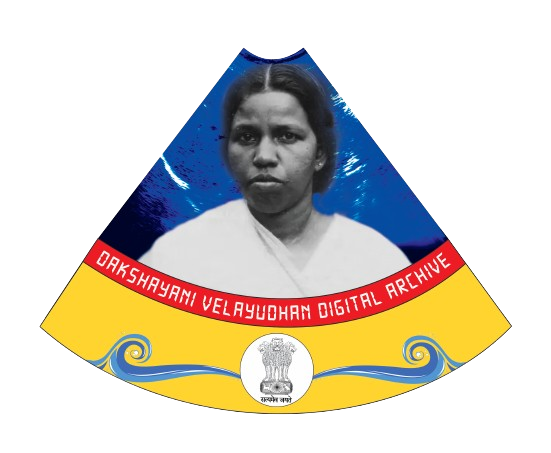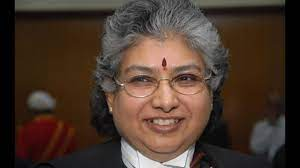Born on 30 October 1962 into a family with a legal legacy, Justice B.V. Nagarathna is the daughter of E.S. Venkataramiah, the 19th Chief Justice of India. She attended Sophia High School, Bangalore, and Bharatiya Vidya Bhavan, New Delhi. After completing her Bachelor of Arts in history from Jesus and Mary College, New Delhi, in 1984, she pursued a law degree from the Faculty of Law, University of Delhi
| Aspect | Details |
| Full Name | Bangalore Venkataramiah Nagarathna |
| Date of Birth | 30 October 1962 |
| Father | E. S. Venkataramiah, Chief Justice of the Supreme Court of India in 1989 |
| Education | – Schooling at Sophia High School, Bangalore, and Bharatiya Vidya Bhavan, New Delhi |
| – Bachelor of Arts in History from Jesus and Mary College, New Delhi (1984) | |
| – Degree in Law from the Faculty of Law, University of Delhi | |
| Legal Career | – Enrolled with the Bar Council of Karnataka in 1987 |
| – Practice in constitutional and commercial law in Bangalore | |
| – Additional Judge, Karnataka High Court – 2008 | |
| – Permanent Judge, Karnataka High Court – 17 February 2010 | |
| Supreme Court Appointment | – Appointed as a Judge of the Supreme Court of India on 26 August 2021 |
| – Took oath on 31 August 2021 | |
| Potential Milestone | In line to become the first female Chief Justice of India in 2027 |
| Notable Incidents | – Forcibly detained by protesting lawyers in Karnataka High Court premises (2009) |
| Judicial Contributions | – Significant judgments in commercial and constitutional law in Karnataka |
| Dissent in Demonetisation Case | – Dissented in the demonetisation judgment, declaring it unlawful on legal grounds (2023) |
| Views on Broadcast Media | – Ordered examination of regulating broadcast media in India to address fake news (2012) |
| – Warned against excessive government control, advocated for self-regulation | |
| Vehicle Taxation Judgment | – Ruled unconstitutional the Karnataka government’s lifetime tax policy for out-of-state vehicles (2016) |
| Temple Non-commercial Status | – Ruled temples not commercial institutions, exempting them from certain labor laws (2019) |
| Autonomy of Private Institutions | – Upheld government policy standardizing admissions in both public and private colleges citing COVID-19 pandemic (2020) |
| Detention by Lawyers | – Unlawfully detained by protesting lawyers in Karnataka High Court (2009) |
| COVID-19 Pandemic Response | – Part of a bench rejecting the halting of mid-day meals in COVID-affected areas |
| – Advocated bridging the digital divide for online education during the pandemic |
Legal Career
Enrolling with the Bar Council of Karnataka in 1987, Justice Nagarathna practiced constitutional and commercial law in Bangalore before her appointment as an additional judge of the Karnataka High Court in 2008. Her dedication to the legal field was evident when she became a permanent judge on 17 February 2010.
Judicial Achievements
Justice Nagarathna’s judicial career is marked by significant milestones. She served as a judge of the Karnataka High Court from 2008 to 2021. Her noteworthy contributions caught the attention of legal circles, positioning her as a potential candidate for the Supreme Court.
Supreme Court Appointment
On 26 August 2021, Justice B.V. Nagarathna was appointed as a judge of the Supreme Court of India, officially taking her oath on 31 August 2021. Her elevation positions her as a trailblazer, as she is anticipated to become the first woman Chief Justice of India in 2027.
Notable Judgments and Opinions:
Dissent in the Demonetization Judgment (2023)
Dissenting from a majority judgment upholding the constitutional validity of demonetization, Justice Nagarathna emphasized legal grounds, questioning the government’s authority to implement such a measure solely through a gazette notification.
Media Regulation (2012)
Alongside another judge, she advocated for the examination of regulating broadcast media in India, highlighting concerns about fake news. She urged a statutory framework allowing self-regulation, cautioning against excessive government control.
Vehicle Taxation (2016)
Ruled that Karnataka’s policy requiring owners of out-of-state vehicles to pay a “lifetime tax” was unconstitutional, challenging the state’s authority to impose such taxes.
Non-commercial Status of Temples (2019)
Affirmed that temples are not commercial institutions, leading to the ruling that provisions of labor laws regarding gratuities did not apply to temple employees.
Autonomy of Private Institutions (2020)
Upheld a government policy to standardize admissions into public and private colleges in Karnataka, citing the COVID-19 pandemic as a reason to limit the autonomy of private institutions.
Detention by Lawyers (2009)
Unlawfully detained by protesting lawyers in the Karnataka High Court, along with another judge and the Chief Justice at the time, P.D. Dinakaran. Released later, she stood firm, stating, “We cannot be cowed down like this. We have taken the oath of Constitution.”
Education During COVID-19 (2020)
Part of a bench that rejected the Karnataka government’s proposal to halt mid-day meals in COVID-affected areas. Advocated for bridging the digital divide for online classes and treated teachers and non-teaching staff as frontline workers.
Justice B.V. Nagarathna’s trajectory in the judiciary, marked by integrity, legal acumen, and resilience, positions her as a significant contributor to the evolving legal landscape in India. As she takes on the responsibilities of the Supreme Court, her journey remains closely watched, heralding a promising era in Indian jurisprudence.

